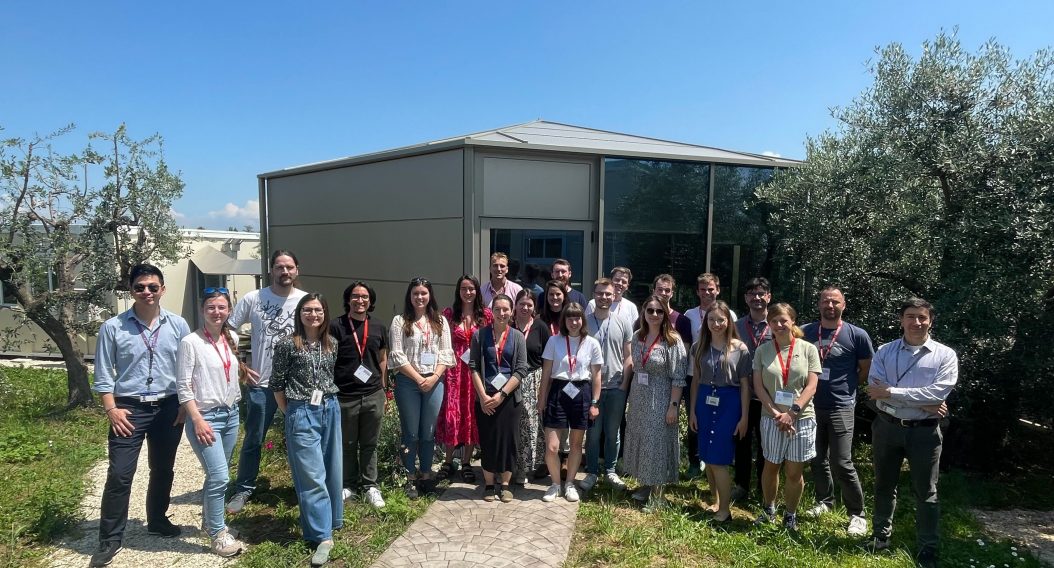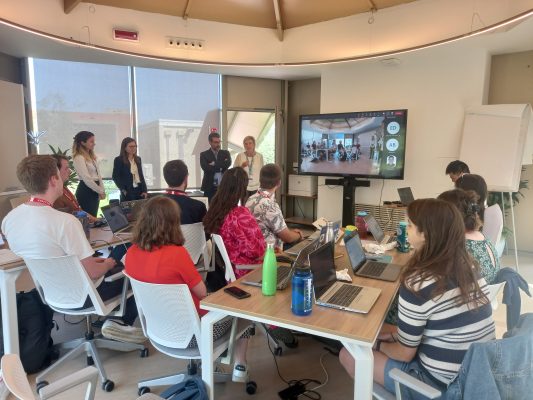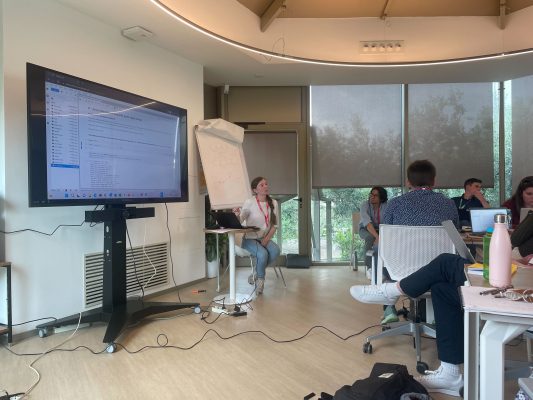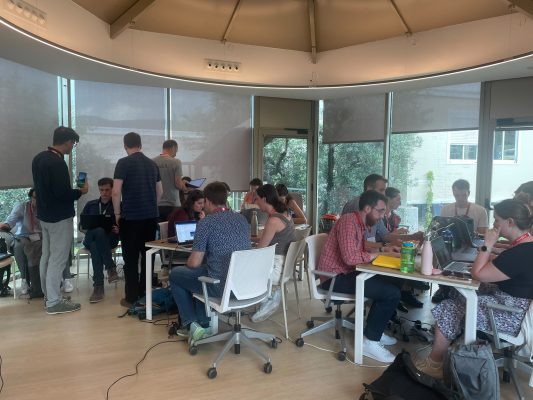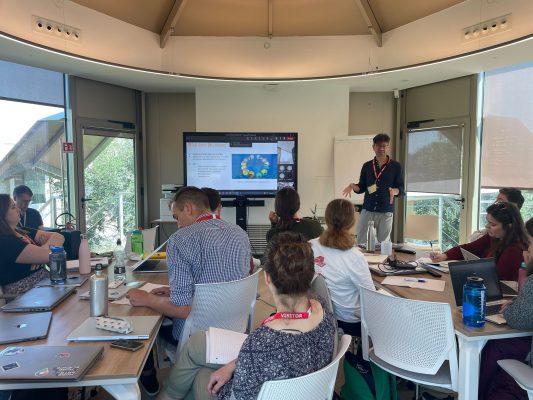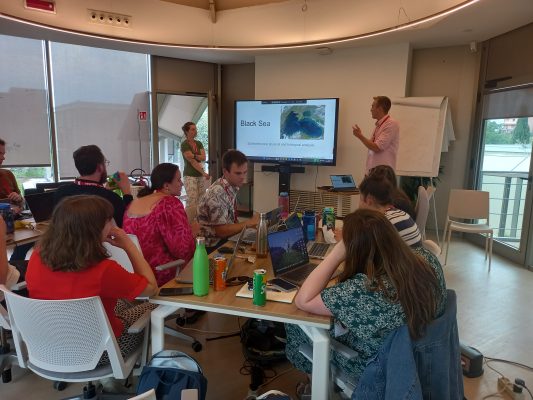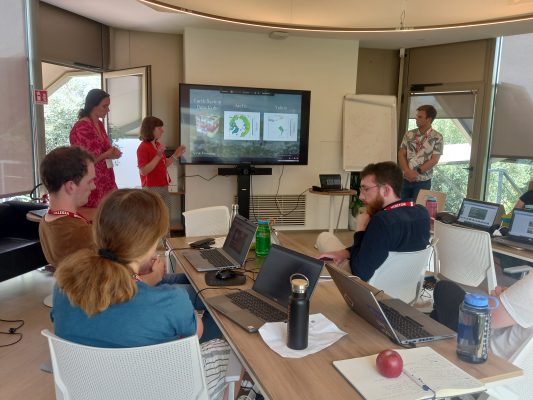The Earth System Science Workshop took place at the ESRIN Science Hub from May 22 to 26, 2023, bringing together a group of 12 PhD students from the University of Edinburgh and University of Leeds led by Professor Kathy Whaler. The workshop aimed to train participants in working with ESA’s Deep Earth System Data Lab (DeepESDL), exploring the scientific potential of its multivariate datasets and analytics capabilities for Earth System research. The workshop was also open to ESA Living Planet Fellows, internal research fellows, Young Graduate Trainees (YGTs), and interns, who had a chance to join the sessions also online.
A promising week at ESRIN Science Hub
Diego Fernandez, the head of the Science section, inaugurated the workshop by introducing ESA activities, highlighting the significance of the Science Hub as a place for collaborative Earth System research, and setting the stage for a fruitful week of working with EO data from ESA satellites.
Participants were warmly welcomed by Simonetta Cheli, the head of ESRIN and Director of the Earth Observation Program (EOP), and Yves-Louis Desnos, head of Data Applications Division, who highlighted the opportunities for young researchers offered in the context of the EOP-SD Division activities.
Collaborative Earth System Science on DeepESDL
At the core of the workshop was the Deep Earth System Data Lab, an open platform that provides analysis-ready datacube access to a comprehensive suite of geophysical and environmental variables in cloud-native formats in an AI-ready virtual laboratory, and is made available free of cost to the Earth Science community via ESA’s Network of Resources. The platform offers a services to facilitate data exploitation, as well as collaborative tools to share data, code and other research artifacts (i.e. facilitate work in teams). The DeepESDL science team led by Professor Miguel Mahecha from the University of Leipzig, introduced key concepts and provided detailed explanations of Earth System datacubes. They discussed the potential of multivariate analyses on global datasets and proposed captivating themes for the students to explore throughout the week, stimulating their curiosity and expanding their understanding.
Some of the topics that the students investigated included:
- field delineation with an instant segmentation model,
- exploration of non-linear trends and variations in the environmental data within Earth System Data Cube,
- principal component analysis (PCA) applied to different variables and areas of interests (Arctic, North Atlantic Ocean and Black Sea region).
Gunnar Brandt and Alicja Balfanz from Brockmann Consult (DeepESDL prime) offered technical insights into DeepESDL, guiding the participants on working with the xcube data stores, utilizing the Python IDE, and visualizing data using the xcube viewer. These practical skills empowered the students to extract valuable insights from the datasets they worked with.
To learn more about the project, visit the ESDL website or explore their EO4Society page.
A learning experience enhanced by ESA’s experts
One of the highlights of the workshop was the opportunity for the students to meet ESA employees and researchers. Several Earth Observation Missions Managers including Anja Stromme, Ferran Gascon, Jerome Bouffard and Nuno Miranda, gave interesting insights into objectives, key results, and future plans of the missions that they manage: Sentinel-1, 2 and 3, CHIME, LSTM, CRISTAL and SWARM. Science Briefs on Atmospheric science and the Carbon cycle were also delivered by domain experts from ESA and the Max Planck Institute for Biogeochemistry. These interactions provided a comprehensive view of the current and upcoming endeavors in Earth Observation.
During their stay, students had also a chance to visit the Phi Lab, meet the team of researchers (external and internal) and see some of their research results.
The success of this first Earth System Science Workshop which was organised under the umbrella of Open Science highlighted the opportunities for collaboration and knowledge sharing offered by the ESRIN Science Hub.

